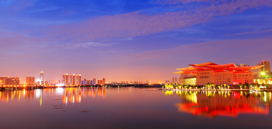Race to riches
Updated: 2014-09-04
In Beijing, Zhu Ning, deputy director and professor of finance at the Shanghai Advanced Institute of Finance, actually hopes not.
He says there is a nouveau riche attitude in places such as Wuxi that is largely absent in more developed countries in the West.
"I think Chinese people who travel to the US and Europe have this strong shock when they don't see this conspicuous consumption of flashy cars and expensive iPads. I think this is because what you have in the West is a more mature income distribution that prevents this."
But Ruchir Sharma, head of emerging markets and global macro at Morgan Stanley Investment Management, based in New York, does not see pockets of wealth in places such as Wuxi as necessarily a problem.
"You always get inequality between regions. We all know that development tends to be much faster in coastal areas. That has been the experience of all economic development and it was true of the United States as well."
The much bigger question is whether China will succeed in joining the high-income club and meet the target likely to be set in the 13th Five-Year Plan (2016-20).
Many emerging nations have fallen into the so-called "middle income trap" from where they have found it impossible to achieve full development.
This has been true of many Latin American countries, which suffered a major debt crisis in the 1980s and had to be bailed out by the International Monetary Fund.
Brazil, host of this year's soccer World Cup and a large emerging economy, has never succeeded in breaking out of the trap, with many of its citizens living in abject poverty.
Russia and South Africa are other BRICS economies that are also not in the top league.
Tel:0510-81178873
E-mail:haiyulu@163.com



